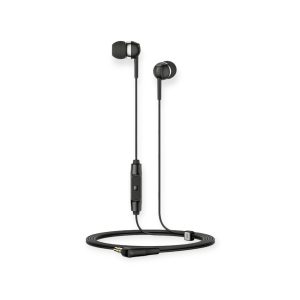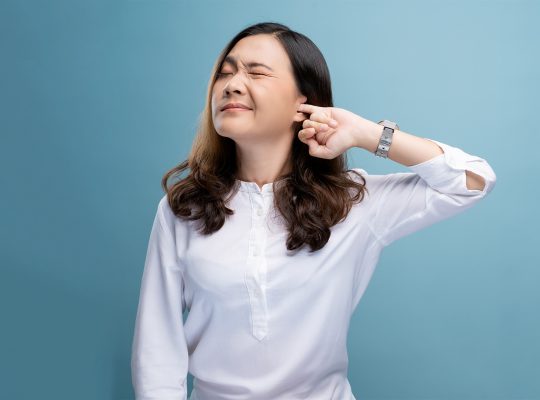It is common knowledge that smoking is harmful to your health. Think lung cancer, cardiovascular disease and an increased risk of stroke. But did you know that smoking can also have a negative impact on your hearing? In this blog, we discuss how smoking can contribute to hearing loss, the mechanisms involved and how to prevent it.
How does smoking affect your hearing?
Smoking has a direct and indirect impact on your hearing. Cigarette smoke contains more than 7,000 chemicals, many of which are toxic. These chemicals can cause damage in various parts of the body, including your ears.
Reduced blood circulation
Nicotine and carbon monoxide, two of the most harmful substances in cigarette smoke, constrict blood vessels. This leads to reduced blood flow in the body, including the inner ear. The inner ear is responsible for converting sound waves into electrical signals that are interpreted by the brain. Poor blood flow can damage the hair cells in the cochlea (cochlea), which are essential for good hearing.
Oxidative stress
Smoking causes increased levels of free radicals in the body. These unstable molecules can damage cells, including the delicate cells in the inner ear. Oxidative stress contributes to premature aging and can accelerate hearing loss.
Inflammations
Long-term exposure to cigarette smoke can lead to chronic inflammation in the body. Inflammation can affect the inner ear, leading to decreased functionality and eventually hearing loss.
Indirect damage from noise
Smokers are often in noisy environments, such as pubs or concert halls, where their hearing is put under additional strain. Smoking combined with exposure to loud noise significantly increases the risk of hearing loss.
Supporting scientific research
Several studies have shown the link between smoking and hearing loss.
- British Medical Journal (BMJ): A study found that smokers are 70% more likely to have hearing loss than non-smokers.
- Journal of the American Medical Association (JAMA): Research suggests that passive smokers (people who are frequently exposed to cigarette smoke) are also at increased risk for hearing loss.
- Clinical Otolaryngology: Here it was found that smoking accelerates hearing loss in people already struggling with a hearing problem.
Passive smoking: an underestimated danger
Not only active smokers are at risk. Passive smoking, also known as second-hand smoke, can also harm hearing. In children, exposure to cigarette smoke can lead to an increased risk of middle ear infections, which can cause long-term hearing damage.
In adults, passive smoking increases the risk of hearing loss by about 30%. This is because the toxins in cigarette smoke have the same harmful effects, such as reduced blood circulation and oxidative stress.
Can you prevent hearing loss from smoking?
The good news is that hearing loss from smoking is partly preventable. Here are some tips to protect your hearing:
Quit smoking
This may seem like a shortcut, but quitting smoking is the most important step in preventing further damage. Within weeks of quitting, blood circulation improves, which also benefits the inner ear.
Protect yourself from passive smoking
Avoid high-smoking environments, such as smoky bars or smoking rooms. Choose smoke-free work and living spaces.
Healthy lifestyle
A healthy lifestyle with a balanced diet rich in antioxidants can reduce oxidative stress. Foods high in vitamin C, E and omega-3 fatty acids support good hearing health.
Regular hearing tests
Have your hearing tested regularly, especially if you smoke or have smoked. Early detection of hearing problems can limit further damage.
Why is awareness important?
While the focus of campaigns is often on the lungs and heart, it is important to call attention to the impact of smoking on hearing as well. Hearing loss can have a major impact on your quality of life. It makes social interactions more difficult, can lead to isolation and even increase the risk of dementia.
By creating more awareness about these lesser-known consequences of smoking, people can make more informed choices about their health.
Smoking and other risk factors
The effects of smoking on hearing are often amplified by other factors, such as:
- Age: Older adults are already at increased risk of hearing loss.
- Noise: Regular exposure to loud noises combined with smoking can put additional strain on hearing.
- Medication: Some medications, such as chemotherapy or antibiotics, can cause hearing damage. Smoking can exacerbate these effects.
Distraction helps with smoking cessation
Distraction plays a crucial role in quitting smoking because it helps to break the craving for a cigarette. By keeping yourself busy with activities such as exercising, reading, listening to music or an audiobook, taking a walk or a hobby, you shift the focus from the need for nicotine to something positive. This reduces the likelihood that you will give in to an impulse. In addition, distractions help manage stress, a common trigger for smoking, in a healthy way. Even small distractions, such as playing a game on your phone, chewing gum or drinking a glass of water, can be enough to reduce the urge and keep you on track.
Helpful products to help you quit:
-
 Sennheiser HD 450BT€139,00
Sennheiser HD 450BT€139,00 -
 Sennheiser CX 80S€39,99
Sennheiser CX 80S€39,99 -
 AGM X6 Phantom Transparent 5G rugged smartphone€324,99
AGM X6 Phantom Transparent 5G rugged smartphone€324,99 -
 Neogrün Vegan Organic Clay – set Yuki€21,99
Neogrün Vegan Organic Clay – set Yuki€21,99 -
 Spotter GPS Watch Air Black SPW-B1702€109,99
Spotter GPS Watch Air Black SPW-B1702€109,99 -
 Leg Guide Headphone Blue€79,99
Leg Guide Headphone Blue€79,99
Conclusion
Smoking is not only harmful to your lungs and heart, but it can also lead to hearing loss. Both direct and indirect effects of cigarette smoke play a role. Fortunately, there are many things you can do to reduce damage, including quitting smoking, adopting a healthy lifestyle and having your hearing tested regularly.
Want to learn more about hearing protection and how to keep your ears healthy? Check out our blogs for practical tips and advice. Remember: your health, including your hearing, is worth fighting for.













